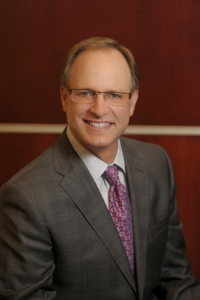Saving is Neither Old-Fashioned Nor Cliché: It’s Common Sense
 Emergency funds are the foundation of any solid financial plan.
Emergency funds are the foundation of any solid financial plan.
Contributed by Jeffrey E. Wherry
As financial planners, we have always stressed the importance of building a financial future on a solid foundation. When speaking with clients who are new to our practice, our first question is: “how healthy are your emergency reserves?” And by that we mean: “how much cash do you have on hand?” We always suggest having at least three to six months of living expenses in a money market or similar account, where it is liquid and accessible.
It’s not necessarily the most exciting way to kick off a conversation about money – clients are way more energized by talking about investments and retirement. And yet, the pandemic of 2020 is demonstrating precisely why a protection-first strategy is critical to an individual’s ability to weather financial turbulence. Asset accumulation only makes sense when it is built atop a solid emergency reserve and appropriate insurance to help manage risk. In the financial crisis of 2008, we saw many of our clients rely on their emergency funds to help get them through when patient loads dropped significantly. We know that this year, a similar pattern will emerge.
If you were to imagine a graphic representation of your financial plan, it would ideally look something like a pyramid. At the base would be a nice cash cushion, your emergency funds. Next would be an assortment of insurance strategies. Disability income insurance to protect your ability to generate an income despite injury or long-term illness. Life insurance to provide for your loved ones, in the event of your unexpected death. And a variety of other risk management tools to help protect your assets and your business interests. Only after these bases were covered would you venture to the next step: future planning goals such as retirement or education planning for your children and grandchildren.
How long does it take to build up an adequate reserve?
This depends on your cash flow, and how much in excess funds you have available on a monthly basis. Clearly, you don’t want to forgo the essentials of living in order to create your emergency fund. On the other hand, you need to be disciplined about it, or else it may not become a reality. Setting up a regular and automatic deposit to the reserve fund makes it so that you no longer have to think about saving every month. Most of our clients are able to build up their reserves within a year.
Where should you put your emergency reserves?
Your emergency funds should be deposited into an FDIC-insured account. You may find that some online banks offer higher interest rates, but the point here is that regardless of which bank you use, you want these funds to be safe, and easily accessible. For this reason, they must stay in cash, in a FDIC account.
Why a line of credit is not equivalent to an emergency fund.
Some firms will suggest using a credit line for emergencies. While it may be an option, we don’t love the idea because if you’re borrowing at a time when you don’t have income, you’re just creating another potential problem for yourself. Secondly, in times of financial crisis, banks can freeze your credit line, which puts an end to using the credit line as an emergency fund. Another creative place to tap into during an emergency could be the built-up cash value in a whole life insurance policy. We would consider a whole life policy, not your primary emergency fund, but rather filling the back-end of your emergency needs.
Consult a financial professional.
As always, it’s important to work with a financial advisor who is familiar with the needs of practitioners in the dental and medical fields.
We wish you good health and discipline as you build your safety cushion.
###
Jerry E. Wherry, CFP®, CLU®, ChFC®, is director of research and planning, Treloar & Heisel Wealth Management, www.treloaronline.com.
Treloar & Heisel is a financial services provider to dental and medical professionals across the country. We assist thousands of clients from training to practice and through retirement with a comprehensive suite of financial services, custom- tailored advice, and a strong service-focused support team.
Treloar & Heisel, Treloar & Heisel Wealth Management, and Treloar & Heisel Property and Casualty are all divisions of Treloar & Heisel, Inc.
Investment Advice offered through WCG Wealth Advisors, LLC, a Registered Investment Advisor doing business as Treloar & Heisel Wealth Management. Treloar & Heisel Wealth Management is a separate entity from The Wealth Consulting Group and WCG Wealth Advisors, LLC.
Insurance products offered separately through Treloar & Heisel and Treloar & Heisel Property and Casualty.
TH-200059




